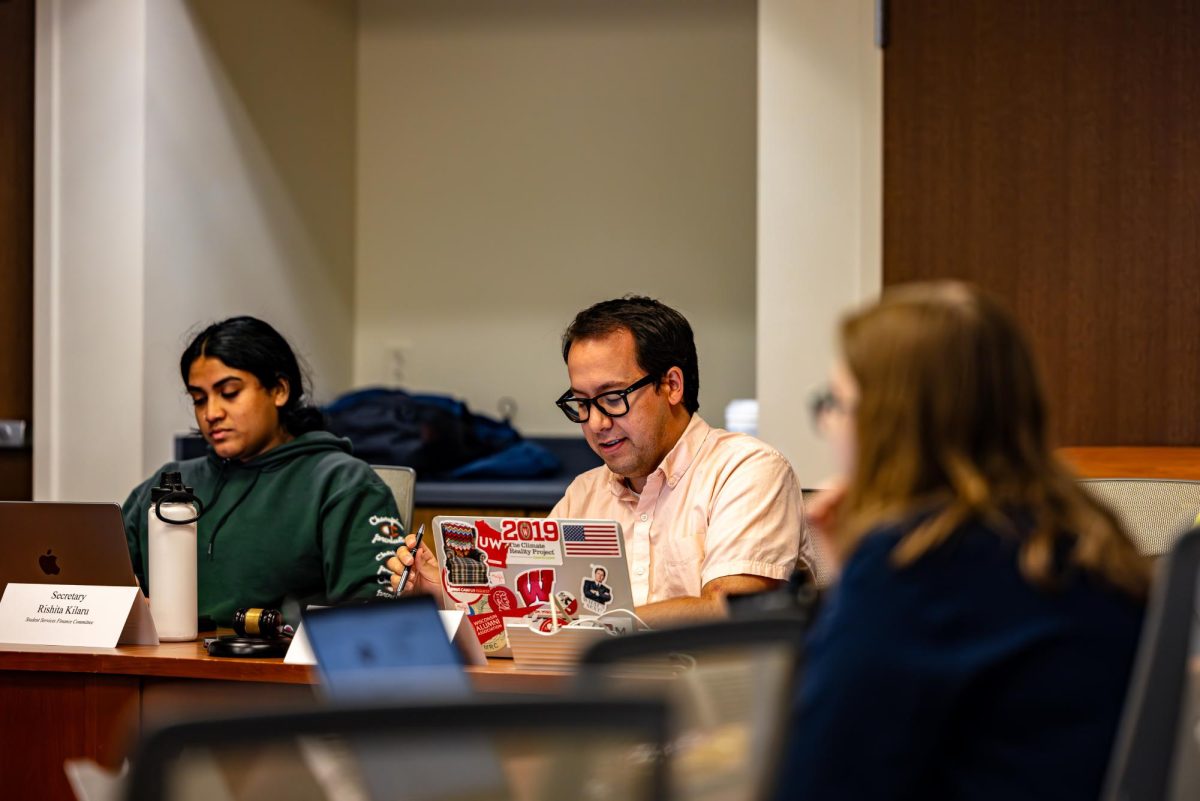Most University of Wisconsin students view education as their ticket into the job market, with a career beginning just after they obtain their degree. But others are choosing to get a head-start on life outside of college by taking advantage of opportunities found on campus – by becoming student entrepreneurs.
“We’re definitely seeing growth in the student interest. That interest is coming from all over campus; its not just coming from one department or school,” Weinert Center for Entrepreneurship Director Dan Olszewski said.
Starting a Startup
Madison has traditionally been a source of startups, especially in the life sciences, because of the strength of the university’s research in the field, Olszewski said. Now, the trend appears to be more toward Information Technology and Internet-based companies.
For students who are investigating their initial ideas, an initial option is to enroll in the Entrepreneurs’ Resource Clinic, Allen Dines, the clinic’s assistant director of corporate relations, said. An offshoot of the Wisconsin Institutes for Discovery, the clinic focuses on providing students with legal advice, prototype assistance, mentoring and obtaining property to house their business. Any student is eligible to submit their idea.
Competitions held at UW, such as the Burrill Competition, Schoofs Prize for Creativity and Capital Entrepreneurs have dramatically increased in number and popularity. Only two such competitions existed five years ago, according to Dines, and many have been introduced in the past two to three years.
In explaining the importance of student-run businesses, Dines said the economy played a significant factor, as many students are attracted to the idea of do-it-yourself careers.
“The rap is that from about the time you are about 21 or 22 to the time you are 35, you will work for 15 companies. People don’t work for the same company for 30 years and then retire,” Dines said.
Olszewski agreed: “To control your destiny, entrepreneurship is a pathway.”
An Education in Entrepreneurship
New to the UW this year, students can now earn a certificate in entrepreneurship. Available to both undergraduate and graduate students outside the business school, over a hundred students signed up for the program in its first few months, Olszewski said.
According to Olszewski, the most successful students see what the market needs, often something they themselves would use.
“It could be a game they see as fun. They are able to start with a pretty clear idea and have the solution,” he said.
Students can also begin their entrepreneurial education in one of the university’s residential learning communities. Faculty Director Chad Navis said the program was less about helping students develop a specific business plan and more geared toward honing the skills necessary to be an entrepreneur on campus.
On the second floor of Sellery Hall, the Entrepreneurial Residential Learning Community helps its 64 freshmen residents develop their ideas into achievable entrepreneurial ventures, according to the residence hall’s web site.
“A lot of the students come in with the type of businesses you expect freshmen to have, like DJ businesses, lawn care. But students will take these concepts and build them while here,” Navis said.
Students in the program come from a wide range of majors and interests, from the social sciences to art to engineering. Many also choose to enter campus-wide entrepreneurial competitions, which have seen participant numbers double since the 2010-2011 school year, Navis said.
What if it does not work?
Dines said students who do not experience immediate results would likely be more successful in a traditional setting because of the skills they developed.
“You learn how to execute things, achievable goals; all these things translate into a better resume and a capability to succeed,” Dines said.
Olszewski also said students tend to assume they know exactly what the market wants and do not run sufficient tests on their product.
“They don’t do enough market research and talking to potential customers,” Olszewski said.
He also said many of the students stay in touch and continue to network with each other and most are able to launch a business or product plan by the end of their undergraduate years.
Ali Randall is a board member of Student Business Incubator, a UW group providing student entrepreneurs with project space and networking opportunities. She said opportunities for entrepreneurs to get support are limited. The Student Business Incubator had 13 applications for only three spots.
“Our generation is so interested in doing our own thing and being creative. There isn’t pressure to join the corporate world right away,” Randall said.
Aziza Jones is a UW senior who started a business that bussed UW students to nearby ski resorts from campus. She said the biggest challenge of being a student running a company was time management.
“It is a balancing act, launching a company and balancing school work. Things can get stressful, but you are never going to have enough time. But for me, that’s how I rationalize this; I can say I was young and I wanted to do this,” Jones said.
She said even if her business is not as successful as she envisioned, she learned a lot through the process about financial planning and adapting to the “little problems.”
Jones said she used the UW entrepreneurship clinic, which connected her to an off-campus mentor and networking opportunities. She plans to return to the clinic for help with employee contracts for the student ambassadors she will hire next fall.
Jones said starting a business is intimidating for everyone, especially students who often think they are not capable – but the end result is worth it.
“In some ways you really have to be able to see it; you have to be able to see yourself running the actual company and start connecting this with how you want to get there,” she said.
















